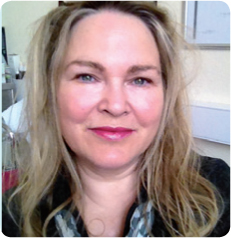
Now, many of us understand that prescribing is not for everyone. However, having access to and governance of prescription-only medicines (POMs), is now a fundamental requirement for today's modern aesthetic nursing practice.
Those of us holding prescribing qualifications understand that prescriptions must be made in line with the requirements of the NMC Code of Practice (NMC, 2019a), and also within the individual's scope of practice.
Furthermore, one must prescribe in line with the best available evidence and the requirements of all relevant legislation, as well as any policies, standards and guidance that underpin the Code (NMC, 2019b).
Until recently, one could perhaps be excused for not having fully grasped prescribing practice, especially with respect to the question of remote prescribing within the private aesthetic sector. However, that is no longer the case.
The issue of remote prescribing within the private aesthetic nursing sector had previously given rise to misunderstanding, uncertainty and much confusion for registrants. They would then frequently compare and contrast their NHS prescribing practices with their private aesthetic nursing practice, and the problem here is that these are indeed different.
Before 2012, remote prescribing generally should only ever have been used in ‘exceptional circumstances’. As stated in the NMC's Standards of Proficiency for Nurse and Midwife Prescribers (2006), article 20.3 states: ‘Where you cannot meet all of the requirements, you must not use remote means to prescribe medicine for a patient/client’.
The General Medical Council (GMC) tightened up their guidance by banning the cosmetic application of toxin from being prescribed remotely, adding that doctors must always hold a face-to-face consultation with patients when using these medicines. This guidance was issued following the GMC versus Dr Mark Harrison case in 2012, as the view from the regulators had changed once the scope for fraud around the practise of remote prescribing had been exposed. As a consequence of his prescribing practices, Dr Harrison was subsequently removed from the GMC register.
Personally, I had long held the belief that aesthetic nurses holding a V300 qualification were particularly vulnerable to exploitation and seen as a commodity by some. With sharp business practice within the aesthetic sector, dubious ethics and a proven propensity for prescribing fraud, NMC registrants should be mindful that they are nurses first, and business comes secondary to that. Those registrants without a V300 qualification may also be susceptible and exposed to prescribing fraud as they may not be fully cognisant with the regulatory prescribing framework within aesthetic medicine.
March 2018 saw the NMC approving the Royal Pharmaceutical Society's Prescribing Competency Framework (2019), which replaces the NMC's 2006 standards.
As they state, the NMC do not issue guidance for specific areas of practice, nor for individually named medicines. However, they appear to have made an exception in this instance, and have used the brand name ‘Botox’. Furthermore, they have shone the spotlight on those of us in the ‘aesthetic and cosmetic’ sector, stipulating that their guidance needs to be considered by any nurse, midwife or nursing associate working in any setting and that this includes ‘those working in a cosmetic or aesthetic practice setting’:
‘This applies to all forms of prescribing, including remote prescribing; and to all medicinal products, including non-surgical medicinal products being used for cosmetic and aesthetic purposes, such as Botox’.
Before July, the guidance on remote prescribing may have been misconstrued. It could have proved a challenge for any prosecuting barrister to demonstrate that one had clarity on the regulatory guidance around the matter of remote prescribing for the aesthetic nurses sector, but not anymore.
There is now no ambiguity around remote prescribing—just do not do it and ignore the guidance at your own peril. Proven prescribing fraud is a serious crime, dealt with by the criminal courts, a criminal record ensues and invariably signals the end of a nursing career.


